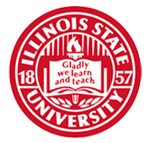Abstract
Introduction: Transnasal flexible endoscopy (TNFE) is necessary for multiple assessments in speech-language pathology (SLP), but it is generally considered an advanced practice technique to be learned during clinical practice. As such, there is no standardized way that it is taught in training programs, leading to a substantial knowledge gap for new graduates. Though peer-to-peer practice has been discussed as an important step in training, it is not clear whether it confers additional benefits above and beyond simulation. This study sought to answer that question in the areas of student confidence, endoscopy speed, and motivation to pursue further TNFE experiences. Methods: Thirty-six SLP graduate students completed TNFE training and one of two practice conditions: simulation only or simulation with additional peer-to-peer practice. Outcome measures included confidence and comfort surveys, intrinsic motivation to complete an additional TNFE experience, and speed of TNFE. Results: No significant differences were found between the two groups for any measure, and consistently low effect sizes indicated there was little difference between groups. Conclusions: These results indicate that teaching TNFE through simulation may provide similar outcomes to peer-to-peer practice during the initial training that an SLP graduate program can provide. This adds to the literature indicating that TNFE simulation is a worthwhile addition to SLP programs.
Recommended Citation
Wolford, L. L.,
Wolford, G. W.,
&
Bolch, C. A.
(2023).
The Utility of Peer-to-Peer Practice for Teaching Speech-Language Pathology Students Transnasal Endoscopy.
Teaching and Learning in Communication Sciences & Disorders, 7(1).
DOI: https://doi.org/10.30707/TLCSD7.1.1675490380.863202
Included in
Medical Education Commons, Rehabilitation and Therapy Commons, Scholarship of Teaching and Learning Commons





